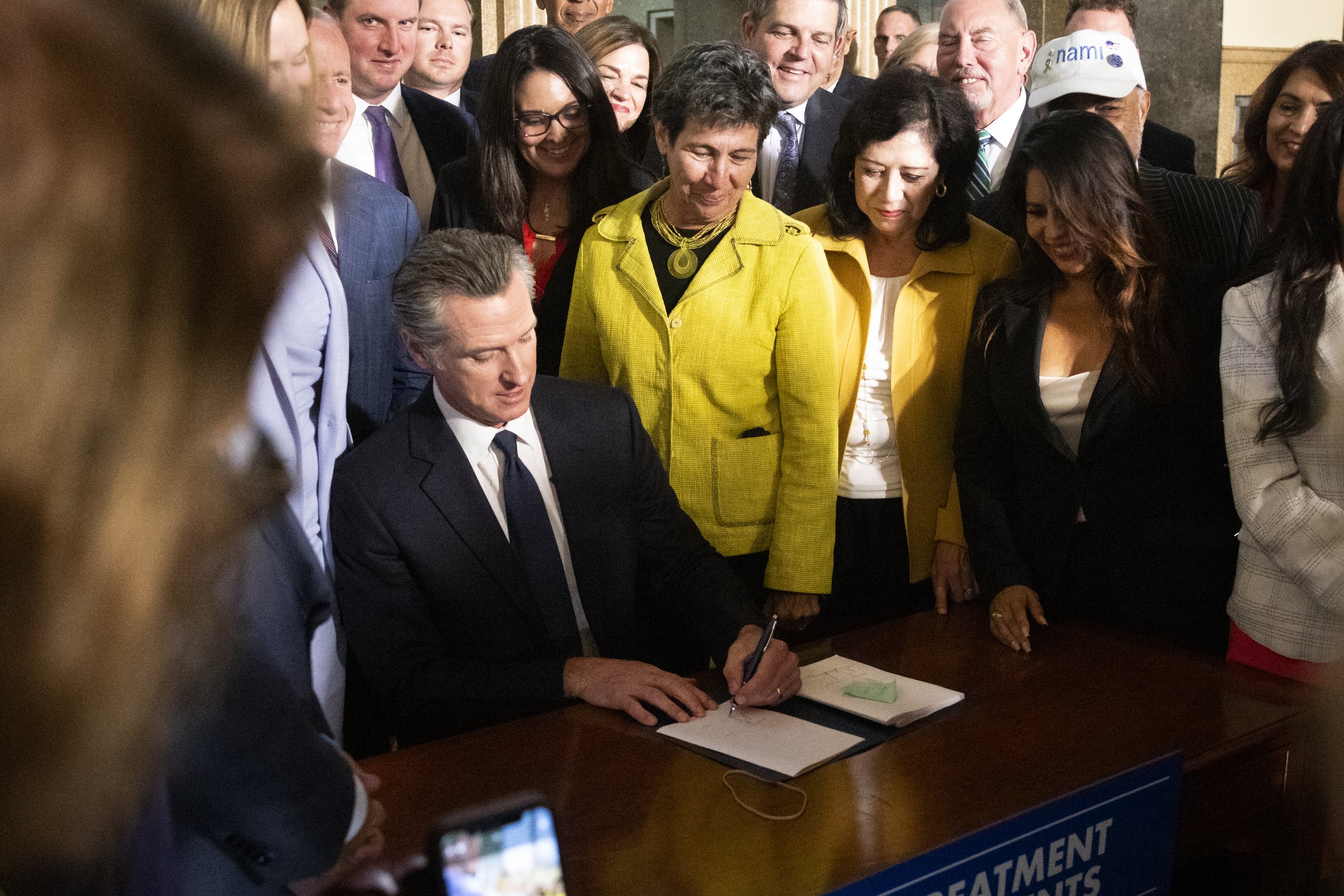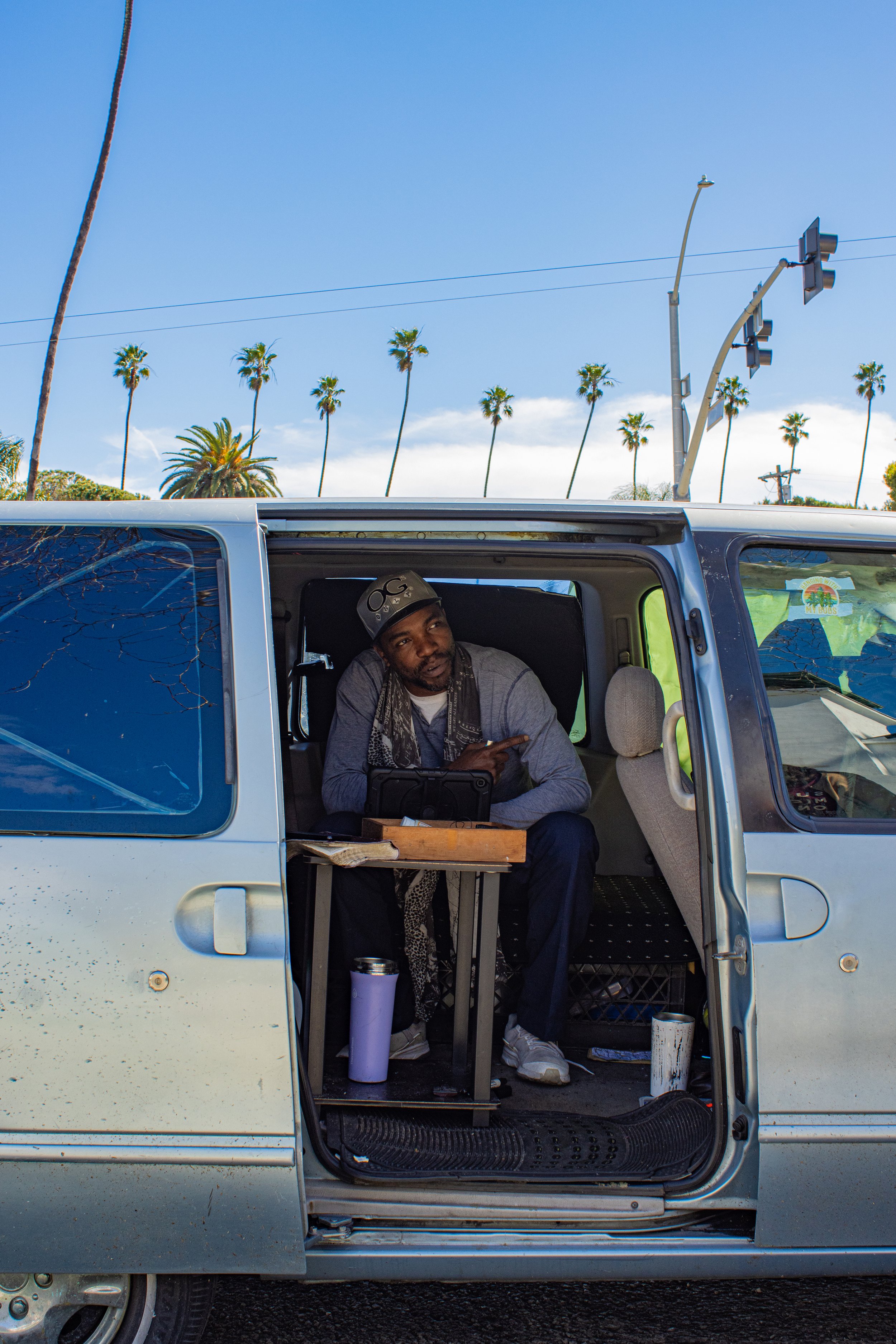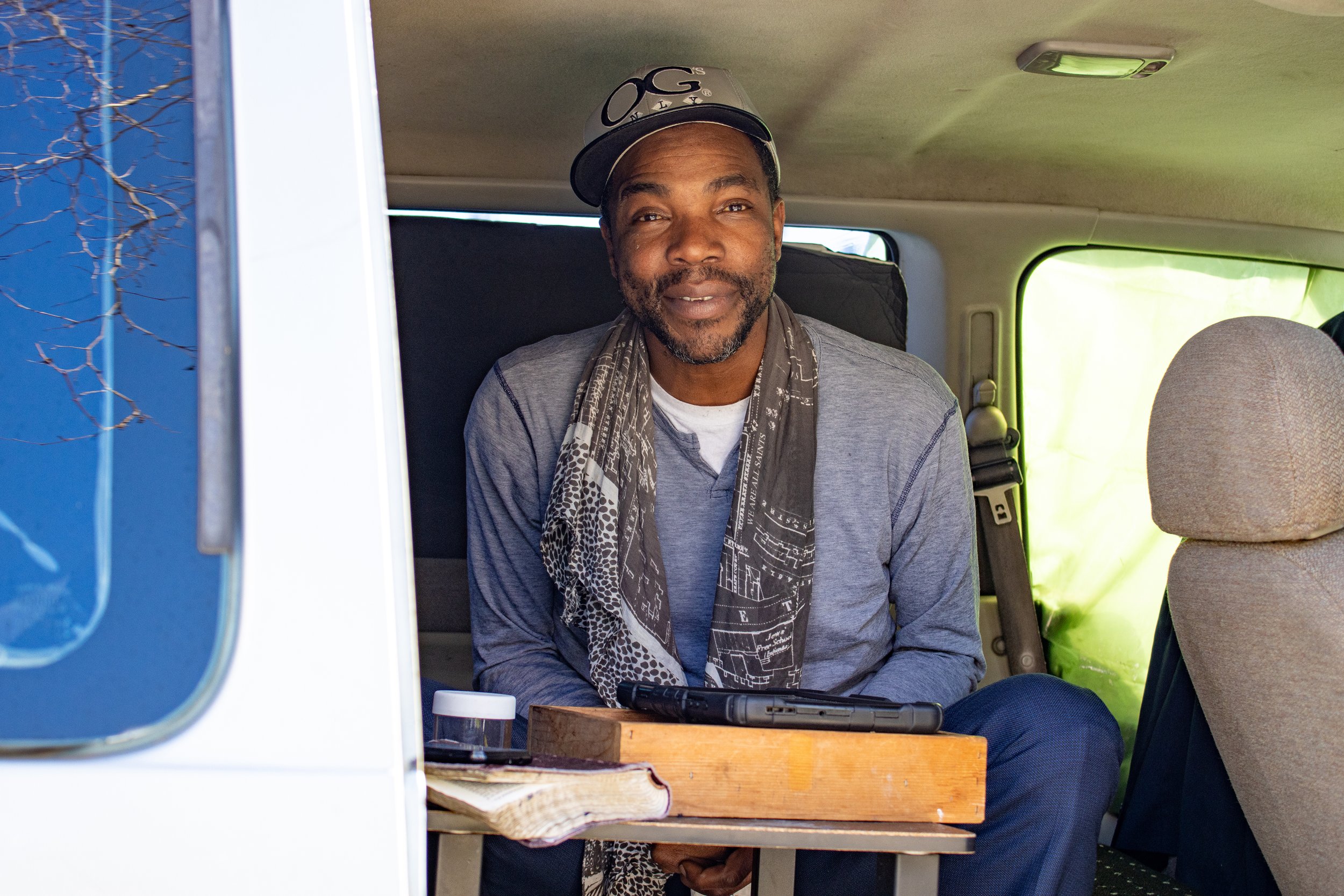Primary Election: How will Californians choose to address homelessness and mental health?



The California Primary Election is about more than just selecting what president will run in November. There’s also a huge bill.
On the busy Venice Blvd., Pat Raphael has parked his home in front of an arts center near a patch of grass in the sidewalk. He bought his van for $400 after his RV was victim to a hit-and-run a few months prior. Sitting on his makeshift couch sheltered from the sun, he said, “We need every type of expansion in housing that we can come up with.”
Homelessness in California has been the center of many political campaigns for decades. The most recent state-wide effort comes from Gov. Gavin Newsom in the form of Proposition 1 - “Treatment not Tents.” This almost 70-page bill has two parts: to repurpose funds from the Mental Health Services Act (MSHA), also known as the “millionaire’s tax,” and borrow $6.4 billion in bonds to fund facilities and housing.
According to the Legislative Analyst's Office, the measure could build places for up to 6,000 people to receive mental health and drug abuse treatment and 4,350 housing units, with 2,350 dedicated to veterans, turned from hotels, motels or other buildings. However, it will require counties receiving MHSA funds to allocate funds away from treatment and towards housing and personalized support starting in 2026.
“It is a massive proposition,” said Elan Schultz, Director of Policy and Strategy at the Los Angeles County Department of Mental Health (LACDMH). “The biggest shift is that it takes 30% of funds from the counties and compels the county to spend that on housing, mainly in the form of rental subsidies.”
The bill will also require MHSA funds to be used to treat substance use disorders (SUDs), however there is no additional funding for those services. Schultz said, “There’s a big question about how we are going to find funding to pay for those new substance use disorder services that would be required under Proposition 1.”
As of January 2023, there were an estimated 181,339 people experiencing homelessness which is 28% of the total homeless population in the U.S., according to the Annual Homelessness Assessment Report (AHAR). Despite the state’s efforts to reduce homelessness through funding, the number of people experiencing homelessness in California has also increased by more than 51,000 since 2018. In 2022, the state allocated $7.1 billion towards reducing homelessness while those without housing grew 3%.
Homelessness in Los Angeles County has been on the rise with a 9% increase in 2023 despite placing more than 20,000 people in permanent homes annually. In a press conference in July 2023, Los Angeles Mayor Karen Bass signed an enhanced emergency declaration on the homelessness crisis.
The University of California San Francisco released a study that showed 82% of people who experience homelessness have reported a serious mental health condition in their lifetime.
Enki Health Services has been providing mental health services to Los Angeles county for 40 years and receiving funds from the MSHA for the last 20. “We’re talking about a massive reduction in our core programs of over $300 million,” Dr. Michael Zelman, Director and Vice President of External Relations at Enki, said. “Prop 1 really ends up pitting housing against mental health…We need to address housing access as a separate issue.” He said the two are related in outcome and should not be conflated.
Raphael, who has been living out of his vehicle for the last ten years, said, “There’s people who become homeless, and then while they’re homeless, their mental health degrades.” He said that while all housing is a positive step, “[when] we choose to address just the problems, it becomes another way of enabling them.”
Raphael has been on the Venice Homelessness Committee, has assisted in political campaigns and is a registered voter, but he does not vote. “I feel like my not vote is a vote as well.”
A “Yes” vote on Prop 1 means counties will reallocate MSHA funds to support housing efforts, that 5% of their funding will go to the state for drug prevention programs and the state will borrow up to $6.4 billion in bonds to build beds for those experiencing homelessness.
A “No” vote on Prop 1 means that there would be no change with the existing MSHA, and the state will not take out $6.4 billion in bonds to build more beds for those experiencing homelessness.
Santa Monica College is an official polling center and will be open for voting at the Cayton Center building on March 2 to 4 from 10:00 a.m. to 7:00 p.m. and on election day, March 5, from 7:00 a.m. to 8:00 p.m.
